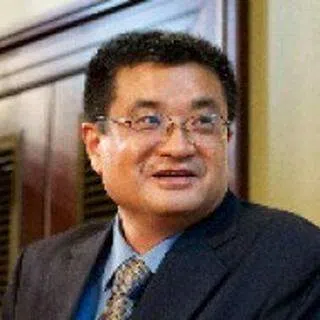[State of our world] Is the world really heading into disorder?
Shutting out the din of international debates on US-China competition, Professor Zha Daojiong puts perspective on changing global dynamics, asserting that China is circumspect about its place in the world and the prospect of decoupling is further than people think. Besides, other players, albeit smaller ones, hold sway over the changing global order too. This is the first in a series of four articles contemplating a changing world order.

In recent years, seemingly, there is no dearth of phenomena to worry about in terms of the world heading into disorder. First, even the unprecedented Covid-19 pandemic failed to serve as the impetus for big powers to re-orientate their diplomacy towards cooperation, even over the pandemic response.
Then, voting at the United Nations over Russian military action against Ukraine revealed distinct lines of division, with many states choosing to abstain over draft resolutions. Tensions between China and the US over Taiwan flared up again, with US House Speaker Nancy Pelosi's dramatised trip to Taipei in early August being the trigger. Food and economic crises in a number of low-income countries barely gained traction beyond the directly affected societies. The list of undesirable developments can go on and on.
But, it is nonetheless true that much of popular discourse centres around the evolution of ties between major countries, especially China and the US. Narratives about world affairs of the day are further simplified as US-China competition in which the former's global supremacy is in jeopardy and China is the primary challenger.
Admittedly, part of the anxiety stems from the fact that some Chinese voices, unwittingly, accept geostrategic and geoeconomic struggles between the "US-led West'' and China as a fait accompli which is possibly indefinite. Earlier warnings about a new Cold War seem to be only too prescient.
Different from the formative years of the Cold War, much of the rest of the world is choosing not to side with either China or the US over differences in high politics. There is no sign of a return to a non-aligned movement that is reminiscent of the 1960s.
In my view, perceptions of the US being (yet again) in decline are erroneous.
US still top economy in the world
In my view, perceptions of the US being (yet again) in decline are erroneous. The US remains unrivalled in the global economy: it faces no real competition in areas of finance and banking, research and development, and data-driven growth. Different from the early 1980s, the last time when talk of decline was in vogue, today the US is a net exporter of fossil energy.
The main challenge the US economy continues to face is in domestic income redistribution. With the passage of legislation, the Inflation Reduction Act being the latest, the Biden administration is showing that the US is translating its "invest, align and compete" political-economic framework into projects with self-generated financial and actionable policy support.

In relation to China, yes, the growing consensus in Washington DC is indeed that of "decoupling", a notion that varies in scope and depth. Viewed against the postwar history of American economic diplomacy, this approach is indeed new. Most notably, back in the 1980s and 90s, the US settled its trade and broader economic disputes with Japan - whom it considered a formidable competitor - by welcoming an inflow of investment.
Whatever the cause, there is a quiet resignation among the Chinese of the need to find a means of survival in the US-led political-economic ecology of the world today.
It does seem today that American elites are worried that if more Chinese companies get to experience operating in the US market, the US would lose the lead that its companies are holding in cutting-edge technologies. Coupled with the encouragement of industrial "reshoring", "nearshoring" and "friendshoring" - i.e, divesting away from the Chinese market - the US is seeking to restore its world dominance in manufacturing.
In China, there is salient recognition of both the dominant power the US holds in the high-tech fields and of US readiness to weaponise the means of transnational economic exchanges including the worldwide banking networks.
The Trump administration succeeded in enlisting a number of Western governments to embargo products made by Huawei - an exceptionally rare case of a Chinese company's success in international technological competition. The Biden administration continued and expanded its push against the international expansion of competitive Chinese technologies. Whatever the cause, there is a quiet resignation among the Chinese of the need to find a means of survival in the US-led political-economic ecology of the world today.
I argue, however, that for China, even if it is politically difficult to comply with "voluntary constraints" on product exports to the US as Japan once did, it should still counteroffer the US with the promotion of green field investment by Chinese companies. High-pitched voices of rejection by some US politicians and the commentariat should not be mistaken as the totality of American views of China.
Job creation by foreign business entities - of course, subject to the same American regulatory requirements - brings direct benefits to American workers. That is a fact. Amid the dismal state of US-listed Chinese stocks and the declining flow of Chinese FDI in the US, one discernible cause behind actions by hawkish US legislators, including those at the state and city levels, tabling one punitive proposal after another, is that they lack a tangible feel of China through observing Chinese business practices in their home states.

Also, China's "dual circulation" approach to navigating uncertainties in the world economy should not and cannot operate in the extreme scenario of living without access to the US economy and society. If anything, such framing is not genuinely innovative. Instead, it is more a summary of practices in the past four decades, which saw China making strides in climbing up the ladder of the world economic hierarchy.
...neither China nor the US has the material foundations to live without each other.
Decoupling not feasible
Little wonder that the rest of the world finds it wise to hide below the radar of diplomatic bickering between Beijing and Washington DC.
With the weakening of power in multilateral regimes like the World Trade Organization to arbitrate differences among its members and trade among nations, which is the bread and butter in nations' pursuit of cross-country interactions, the world seems to be heading into a bifurcated system.
Projects like the Belt and Road Initiative (BRI) led by China, and the US-EU Technology Council and the Indo-Pacific Economic Framework for Prosperity (IPEF) led by the US, seem to lend credence to such projections of a divided future in the making.
But, there is no reason to see the future as bleak. No matter how enthusiastic the rhetoric is of mutual rejection - over development models, domestic governance, soft power competition, etc. - neither China nor the US has the material foundations to live without each other.
Furthermore, it is not only against the principle of sovereignty but also practically unenforceable for a third country to be "clean" of its interactions with either China or the US.
...worries about disorder need to be viewed by factoring in salient leverages nominally small countries have in affecting the outcome of big power competition.
Stability sought by other countries
In the Asian side of the Pacific region, stability and avoiding conflict are central values for all countries. The accepted wisdom is to work to prevent another confrontation like the Vietnam War (1955-1975), which featured big power competition over ideology and military influence. Diplomatic efforts by the Association of Southeast Asian Nations (ASEAN) have proven remarkably durable.
Since the 1970s, ASEAN has initiated many dialogue partnerships with all countries willing to participate, including hosting regional security forums to include participants as diverse as Australia, China, the EU, India, Japan, Russia, the UK and US (listed here in alphabetical order).
Indeed, diplomatic efforts centred around the notion of ASEAN centrality have proven that peaceful coexistence is attainable among nations with diverse ideological inclinations and competing memories of historical entanglements.

Hence, worries about disorder need to be viewed by factoring in salient leverages nominally small countries have in affecting the outcome of big power competition. This is true not only in the Asia Pacific region but with the rest of the world as well. The modus operandi of world diplomacy in the recent past shows that this matters in determining whether big powers can realise their rhetorical absolutistic preferences.
...taking a deliberative approach to issues of order and ideology - rather than exclusivity, much less an insistence on dominance - will help alleviate the seeming distress that (yet again) is drawing great attention.
Finally, very much like an individual's navigation of surprises and inconveniences in everyday life, "order" is what one party makes out of it. Adjustment through introspection and self-change has to be part of the solution to address anxieties.
For politicians, diplomats and the commentariat, taking a deliberative approach to issues of order and ideology - rather than exclusivity, much less an insistence on dominance - will help alleviate the seeming distress that (yet again) is drawing great attention.
Related: [State of our world] China's future in a politicised world | [State of our world] From Three Worlds to Four: Mao's revised theory of an emerging global order? | [State of our world] The world will be very different from the one we're used to | Can the world survive these six crises? | Financial decoupling: China's next step amid intensifying China-US rivalry? | China-US competition: Why small countries will not choose sides | When a country needs to choose between realism and idealism | ASEAN needs unity of purpose to survive great power contestations | Three big changes in China-US competition after Pelosi's Taiwan visit



![[Photos] Fact versus fiction: The portrayal of WWII anti-Japanese martyrs in Taiwan](https://cassette.sphdigital.com.sg/image/thinkchina/3494f8bd481870f7c65b881fd21a3fd733f573f23232376e39c532a2c7593cbc)

